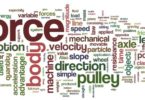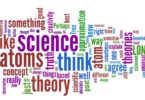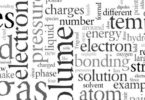40 Objective type questions with answers on Structure of Atom (Atomic Structure) – Chemistry
MCQs on Structure of Atom:
The term ‘atom’ was given by
(a) Democritus
(b) John Dalton
(c) William Crookes
(d) Maharishi Kanada
Bohr’s model can explain
(a) The spectrum of hydrogen atom only
(b) Spectrum of atom or ion containing one electron only
(c) The spectrum of hydrogen molecule
(d) The solar spectrum
The atomic number of an element is always equal to
(a) Atomic weight divided by 2
(b) Number of neutrons in the nucleus
(c) Weight of the nucleus
(d) Electrical charge of the nucleus
When an electron jumps from L to K shell
(a) Energy is absorbed
(b) Energy is released
(c) Energy is sometimes absorbed and sometimes released
(d) Energy is neither absorbed nor released
The first atomic theory was given by
(a) Democritus
(b) John Dalton
(c) William Crookes
(d) Maharishi Kanada
Related: Wave Optics (Physics) Sample paper
The nucleus of element 21E45 contains
(a) 45 protons and 21 neutrons
(b) 21 protons and 24 neutrons
(c) 21 protons and 45 neutrons
(d) 24 protons and 21 neutrons
Who, among the following scientists, proved that the atom of any element contains still smaller particles?
(a) John Dalton
(b) William Crookes
(c) J.J. Thomson
(d) Goldstein
When an electron jumps from a lower to a higher orbit, its energy
(a) Increases
(b) Decreases
(c) Remains the same
Tritium is the isotope of
(a) Hydrogen
(b) Oxygen
(c) Carbon
(d) Sulpher
Name of the scientist whose work has confirmed that an atom consists of three sub-atomic particles – electrons, protons and neutrons.
(a) John Dalton
(b) William Crookes
(c) Rutherford
(d) Niel’s Bohr
Related: acceleration due to gravity quiz
A moving particle may have wave motion, if
(a) Its mass is very high
(b) Its velocity is negligible
(c) Its mass is negligible
(d) Its mass is very high and velocity is negligible
Which of the following is not true in Rutherford’s nuclear model of the atom?
(a) Protons and neutrons are present inside the nucleus
(b) the volume of the nucleus is very small as compared to the volume of the atom
(c) The number of protons and neutrons is always equal
(d) The number of electrons and protons is always equal
The atom on the whole is :
(a) Positively charged
(b) Negatively charged
(c) Neutral in nature
Visible range of hydrogen spectrum will contain the following series
(a) Pfund
(b) Lyman
(c) Balmer
(d) Brackett
The maximum number of electrons present in an orbit l = 3, is
(a) 6
(b) 8
(c) 10
(d) 14
Related: young’s modulus questions
The nucleons among the following are :
(a) electrons
(b) protons
(c) neutrons
The explanation for the presence of three unpaired electrons in the nitrogen atom can be given by
(a) Pauli’s exclusion principle
(b) Hund’s rule
(c) Aufbau’s principle
(d) Uncertainty principle
Energy of atomic orbitals in a particular shell is in the order
(a) s < p < d < f
(b) s > p > d > f
(c) p > d > f > s
(d) f > d > s > p
The extra nuclear particles are :
(a) electrons
(b) protons
(c) neutrons
Krypton (36Kr) has the electronic configuration (18Ar) 4s2, 3d10, 4p6. The 37th electron will go into one of the following sub-levels
(a) 4f
(b) 4d
(c) 3p
(d) 5s
Related: Alkaline Earth Metals MCQs
Which is not correct about electrons?
(a) Discovered by Chadwick
(b) Named by J.L. Stoney
(c) Present inside the nucleus
(d) It has a maximum e/m ratio
Ratio of radii of the second and first Bohr orbits of H atom
(a) 2
(b) 4
(c) 3
(d) 5
Compared to the mass of the lightest nucleus, the mass of an electron is only
(a) 1/80
(b) 1/360
(c) 1/1800
(d) 1/1000
The quantum number ‘m’ of a free gaseous atom is associated with
(a) The effective volume of the orbital
(b) The shape of the orbital
(c) The spatial orientation of the orbital
(d) The energy of the orbital in the absence of a magnetic field
A metal surface is exposed to solar radiations
(a) The emitted electrons have energy less than a maximum value of energy depending upon the frequency of incident radiations
(b) The emitted electrons have energy less than the maximum value of energy depending upon the intensity of incident radiation
(c) The emitted electrons have zero energy
(d) The emitted electrons have energy equal to the energy of photos of incident light
Related: Hydrocarbons Sample Paper
Which of the following is never true for cathode rays?
(a) They possess kinetic energy
(b) They are electromagnetic waves
(c) They produce heat
(d) They produce mechanical pressure
The mass of neutrons is…….times the mass of an electron.
(a) 1840
(b) 1480
(c) 2000
The number of electrons in one molecule of CO2 are
(a) 22
(b) 44
(c) 66
(d) 88
The number of electrons which can be accommodated in an orbital is
(a) One
(b) Two
(c) Three
(d) Four
Which property of elements is not a whole number?
(a) Mass number
(b) Atomic number
(c) Atomic weight
Related: young double slits formula
Positive ions are formed from the neutral atom by the
(a) Increase in nuclear charges
(b) Gain of protons
(c) Loss of electrons
(d) Loss of protons
The de-Broglie equation applies
(a) To electrons only
(b) To neutrons only
(c) To protons only
(d) All the material object in motion
The ratio of the specific charge of an electron to that of a proton is
(a) 1:1
(b) 1837:1
(c) 1:1837
(d) 2:1
A neutral atom always possess
(a) Protons
(b) Neutrons + Protons
(c) Neutrons + Electrons
(d) Neutrons + Protons + Electrons
Related: quiz on Alkali Metals
Ions which have the same electronic configuration are those of
(a) Lithium and sodium
(b) Sodium and potassium
(c) Potassium and calcium
(d) Oxygen and chlorine
If value of azimuthal quantum number is 2, then total possible values of magnetic quantum number will be
(a) 7
(b) 5
(c) 3
(d) 2
The lightest sub-atomic particle is
(a) Neutron
(b) Meson
(c) Electron
(d) Proton
Though the three fundamental particles are present in almost all elements, one element does not posses ______.
(a) Proton
(b) Electron
(c) Neutron
(d) Nucleus
The magnetic quantum number for an electron when the value of principal quantum number is 2 can have
(a) 3 values
(b) 2 values
(c) 9 values
(d) 6 values
If n = 3, then the value of ‘l’ which is incorrect
(a) 0
(b) 1
(c) 2
(d) 3
Related: Trigonometry sample questions and answers
The heaviest particle is
(a) Meson
(b) Electron
(c) Proton
(d) Neutron
Wavelength associated with electron motion
(a) Increases with increase in speed of electron
(b) Remains same irrespective of speed of electron
(c) Decreases with increase in speed of e–
(d) Is zero
The shape of an orbital is given by the quantum number
(a) n
(b) l
(c) m
(d) s







Congratulations!! you are useful
Thank you for these
Last questions answered will be 2 in any orbit max 2 electron can be come